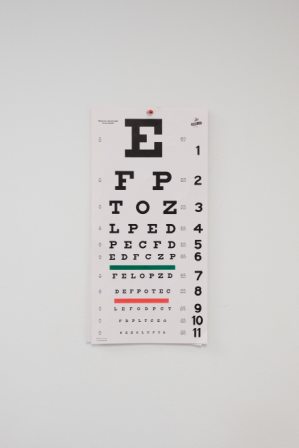 Between old wives’ tales and misinformation online, patients face a lot of confusion about health care, and self-diagnosis has become a popular practice. But when it comes to eye health, it’s important to know the facts and get the right kind of care in order to protect your vision.
Between old wives’ tales and misinformation online, patients face a lot of confusion about health care, and self-diagnosis has become a popular practice. But when it comes to eye health, it’s important to know the facts and get the right kind of care in order to protect your vision.
Seniors, who are at greatest risk for vision loss from eye disease, need to be especially diligent to keep their eyes healthy through regular checkups with ophthalmologists – medical doctors who specialize in the diagnosis and treatment of eye diseases. To help protect your vision and prevent vision loss at any age, EyeCare America, a public service foundation of the American Academy of Ophthalmology, clarifies five common eye health misconceptions:
Feeling Pain
Unless I feel pain or notice changes in my vision, I don’t need an eye exam. Most eye diseases, like glaucoma and age-related macular degeneration (AMD), have no early warning signs or symptoms. By the time a change in vision is noticed, the damage can be irreversible. Regardless of symptoms, regular eye exams are essential in protecting sight.
Computer Screens
Computer screens ruin your eyesight. Spending long hours in front of a computer screen can cause eyes to feel tired and strained for a variety of reasons, including the tendency to blink less frequently. But the good news is that computer screens are not responsible for any permanent damage to vision.
Sunglasses
Kids don’t need sunglasses. Exposure to UV rays can increase your risk for AMD and cataracts. Since UV damage is cumulative, even the youngest eyes need to be protected from the sun. Make sure sunglasses block 100 percent of UVA and UVB rays, and don’t forget to wear them on the slopes or during other outdoor winter sports. Wear a hat and seek shade, too, to protect eyes from UV damage.
Aging
Vision loss is a normal part of aging. Getting older does not mean that vision loss is inevitable. Most vision loss can be prevented as long as you catch eye diseases early and take steps to protect your vision. Staying active, eating healthy foods and practicing other healthy habits will help protect your vision as you age.
Eye Exams
If you got your eyes screened when you got new glasses or contacts, you don’t need an eye exam. Only a dilated eye exam allows an ophthalmologist to examine the entire eye and detect signs of eye disease. Even if you recently got a new prescription for glasses or contacts, you might still need a dilated eye exam.
Taking proper care of our eyes is essential to preserve good vision as we age. The first step in maintaining healthy vision is to schedule regular, dilated eye exams, starting with a baseline exam by age 40. After age 65, you should schedule eye exams every one to two years or as advised by your ophthalmologist.
 Related Articles & Free Subscription
Related Articles & Free Subscription
10 Things Medicare Doesn’t Cover








If you would like to increase your knowledge just keep visiting this web page and be updated with the most up-to-date news update posted here.|